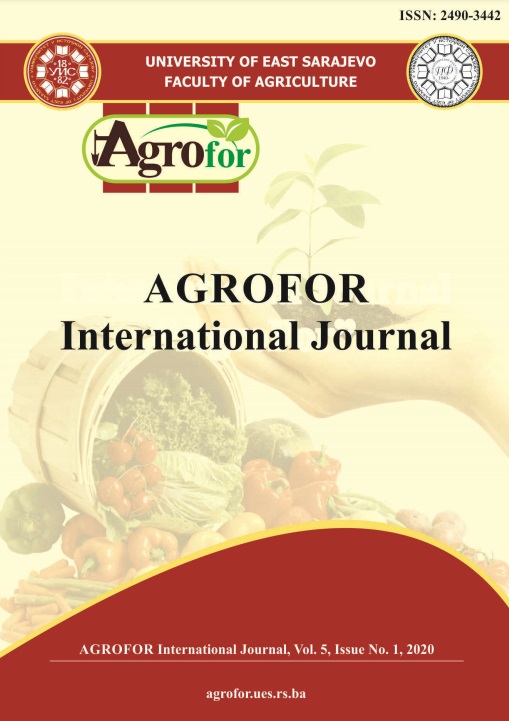CHARACTERIZATION OF THE CALVING INTERVAL IN THE MERTOLENGA BREED: THE INFLUENCE OF THE COMMON AGRICULTURAL POLICY BETWEEN 1986 AND 2012
DOI:
https://doi.org/10.7251/AGRENG2001104SAbstract
Natural conditions in most of the Portuguese territory (marginal soils and severe water deficit in the summer) do not favor intensive meat production, which in turn determines a low stocking rate unless the pastures are well managed and the animals adequately supplemented when necessary. These improvements are costly and pointless in most cases explaining why breeders do not adopt this strategy. As grassland and forage production, in most cases, are not suitable for efficient fattening, the conversion of land use has led to an increase in the number of suckler cows in the studied period (1986 to 2012), since these animals are less dependent on forage quality and have lower feed costs. It is under this complexity of factors that the Mertolenga breed stand out for its sturdy build, ease of delivery and low food requirements. Establishing periods of calving/mating, and the shortening of these periods, allows co-ordination of the greater nutritional requirements of the animals with the time of the year of greater pasture growth. This would enable the reduction of supplementary feed. The definition of breeding season allows the use of reproductive technologies, which increases neonatal survival until weaning. When the political conditions are added to the natural conditions, the question arises as to the extent to which the efficiency of production has been altered through the stages of the CAP. Also how can the economic viability be supported in the future regardless of the Community support.

